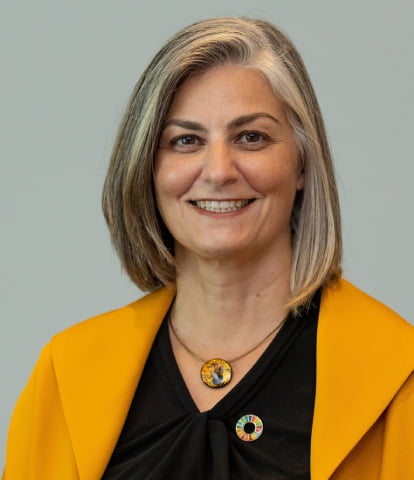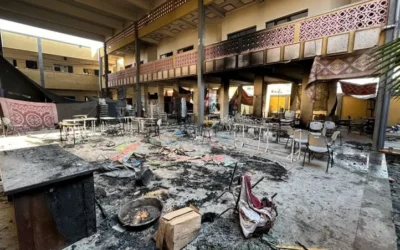Why partnerships are the key to sustainability in education
The critical contribution of a high quality post-secondary education system on a nation’s economic and social development is undisputed. Governments have long assumed responsibility for providing quality education to their citizens and residents, but this responsibility is becoming increasingly complex and challenging as pressures from an innovation economy grow. The Covid-19 pandemic has exacerbated this challenge as governments work to provide distance learning and e-learning opportunities to all students across a diversity of contexts.
Preparing all learners for industries of the future can be an especially daunting task for dedicated decision makers facing a digital divide that marginalises those who need the most support. As education levels and income decrease, so does a person’s access to internet connectivity and technology. This means that the focus on the use of online learning during a pandemic to safeguard health and safety for learners is having a multiplier effect on disparities in education systems globally.
To ensure that the next generation will be prepared for the needs of the future and to mitigate against the security threat of a critical mass of uneducated youth with little opportunity, we need joint action from multiple sectors.
During the first week of June, the World Bank organised the Education 4.0 conference, where discussions were focused on education technology (EdTech) in the MENA region and how partnerships among philanthropic organisations, and public and private institutions can play a role in improving access to and delivery of higher quality sustainable education solutions. Not just education solutions, but solutions that act as pathways to jobs of the future for marginalised populations.
The initiative brought together different sector leaders who are working in the EdTech space to share ideas about scalable solutions from early childhood education to corporate upskilling. The event called for working with a sustainability mindset, a mindset that focuses on long-term strategy and allows corporations to find the return on investment they need to continue their business journey, while simultaneously assuring the positive social impact necessary for the development of the MENA region.
Through long-term public-private partnerships with a vision for economic national and regional development, quality online education is part of joint-initiatives that elevate learners’ livelihoods through new pathways to employment. When content and delivery are co-designed to serve the interests of youth development, their e-learning experience becomes part of a larger ecosystem for national development. A more educated workforce serves the private sector in a future where digital skills are regarded as basic skills. Additionally, they can also co-design training programs, assuring that teachers have the understanding, skills, and access to technology for appropriate online instruction and assessment.
During Education 4.0, we learned about the efforts of leading multinational corporates whose strategic educational investments are also tied to workforce capacity building, micro-credentials, and serving refugees. We learned how some private sector actors are embracing the gig-economy as an opportunity for traditionally marginalised populations to find a way to elevate their livelihoods. We heard from regional and international EdTech start-ups about their partnerships with ministries of education to tackle the growing skills gap.
These collaborations are essential to creating a sustainable future for education with purpose.
Dr. Sonia Ben Jaafar, Chief Executive Officer, Abdulla Al Ghurair Foundation for Education



